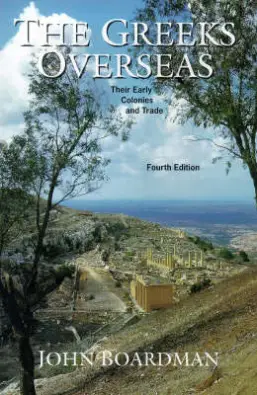
Haz clic en la imagen para ampliarla
THE GREEKS OVERSEAS : THEIR EARLY COLONIES AND TRADE
JOHN BOARDMAN
THAMES & HUDSON
9780500281093
No disponible, contactar
El contacto de seguridad todavía no está disponible. Si necesitan esta información solicítenla mediante este enlace
Este artículo no tiene advertencias de seguridad. Si tienen alguna duda al respecto consulten al contacto de seguridad.




